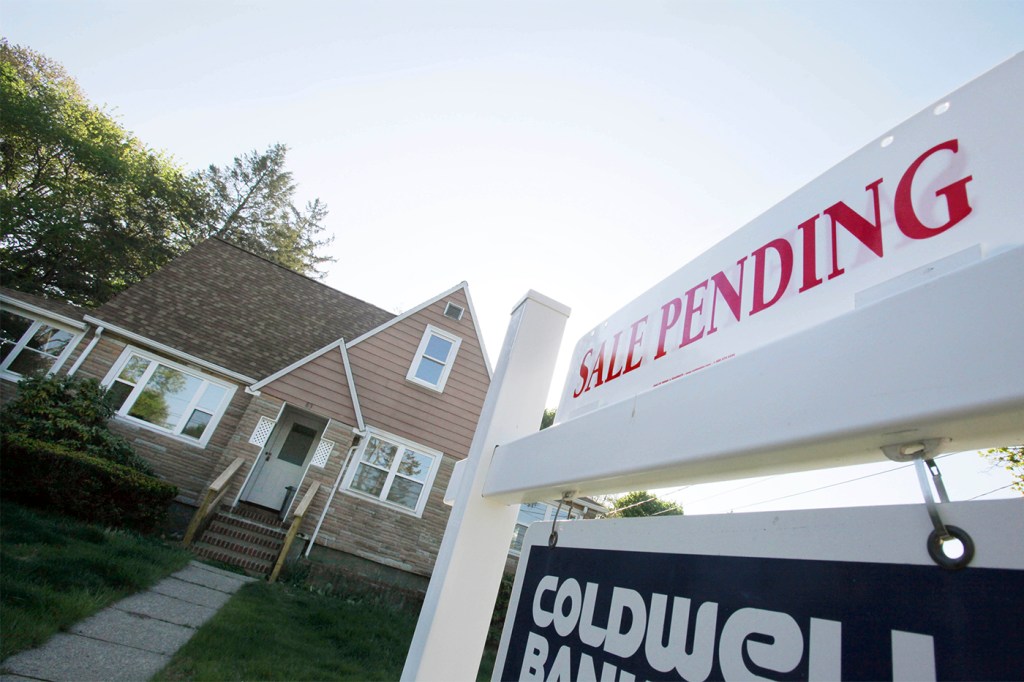Is it best to rent or to buy a house in this economy?

Those in the market for a new house this summer may be asking themselves the age-old question: Is it best to rent or to buy?
The answer is usually the same.
“It depends,” says Robert Triest, chair and professor of economics at Northeastern University.
Generally, if a person plans on being in one area for a long time, has money saved for a down payment and a steady income to make the mortgage payments, it is better to buy. If not, renting might be the better option, even if rent prices are rising.

The inventory of single-family homes and condos on the market in Massachusetts continues to dwindle. Meanwhile, prices increased in March, the most recent data available by The Warren Group, a real estate and financial information firm.
The number of single-family homes available declined 23.4% from last year to 2,756. Sales also dropped by 26.2% to 7,184. The median single-family home price set a new record at $540,000, an increase of 4.9% from last year.
In Boston, the median rent for all bedrooms and property types is $3,200 a month, an increase of $300 from last year, according to Zillow.
Meanwhile, a recent report by the National Association of Realtors suggests that being mobile also increases your chances of finding an affordable home. The study lists places like Atlanta, Dallas-Fort Worth and Raleigh, North Carolina—all major tech hubs—as good investments or places where deals can still be had.
“What we are seeing is inventory is still at an all-time low,” says Amy Wallick, president-elect of the Massachusetts Association of Realtors. “We have the natural law of supply and demand. So, what we are seeing is, it is incredibly competitive.”
One house can have multiple offers, bidding up the price, Wallick says. As a result, it will take longer to find the perfect home.

Wallick encourages people to buy if they can. She says the supply-and-demand issues don’t change the benefits of becoming a homeowner.
“You’re building wealth, you’re building equity, you’re building long-term wealth,” Wallick says. “You have more control over things when you own your home.”
With rising interest rates and uncertainties about the economy, Cassidy Norton, associate publisher and media relations director of The Warren Group, expects to see similar trends as the spring housing market begins to heat up.
Whether to buy or rent “wildly depends on where you are in your life,” Norton says.

If one can comfortably afford to buy a house, including the mortgage, homeowners insurance and enough for significant repairs—a new roof or boiler or replacing a rotted deck—then it is worth it, Norton says.
Housing prices rise and fall, so owners should not count on real estate to produce short-term financial gains, Norton says. So when buying, she advises homeowners to stay long enough to build enough equity to outpace an economic downturn.
“Historically speaking, buying a house is still the biggest investment you can make in your personal and financial life,” Norton says. “It is risky as everything, but it is worth it to buy versus to rent if you can.”
Behind the wonky housing market are the elevated interest rates due to inflation, which exceeds the Federal Reserve’s target rate of 2%.
In response, the Federal Reserve Bank implemented a series of interest rate hikes to slow the economy and bring down inflation, Triest says. The Fed recently signaled that it may pause future hikes, but it’s unlikely mortgage rates will fall back down to the extremely low levels seen two to three years ago, Triest says. However, they will likely fall below where they are now.
The increase in housing demand will take some time to play out and may trump the supply response in bringing down prices. There are also many people who have very low mortgages. Ordinarily, every year some people sell their houses and upgrade to larger homes or move for some other reason.
“They’re less likely to do that now because, in many instances, they’re sitting on a mortgage that’s a much more favorable rate than they could get currently,” Triest says. “Now, that’s not true of everybody. Some people didn’t refinance into those low rates. But, on the other hand, they’re also people who have to move for compelling reasons—a job in a different city.”
The demand for housing increased during the pandemic due to people’s working arrangements, Triest says. And prices for rental units and owner-occupied houses have increased in response to that.
For some people, that means finding housing choices that are a disappointment. Still, for others, those without a steady income or who have low levels of education might have a risk of finding adequate shelter or might become homeless.
Triest believes the market will come back to an equilibrium over time.
“But in the short run, it does mean that housing is less affordable,” Triest says.
Beth Treffeisen is a Northeastern Global News reporter. Email her at b.treffeisen@northeastern.edu. Follow her on Twitter @beth_treffeisen.






